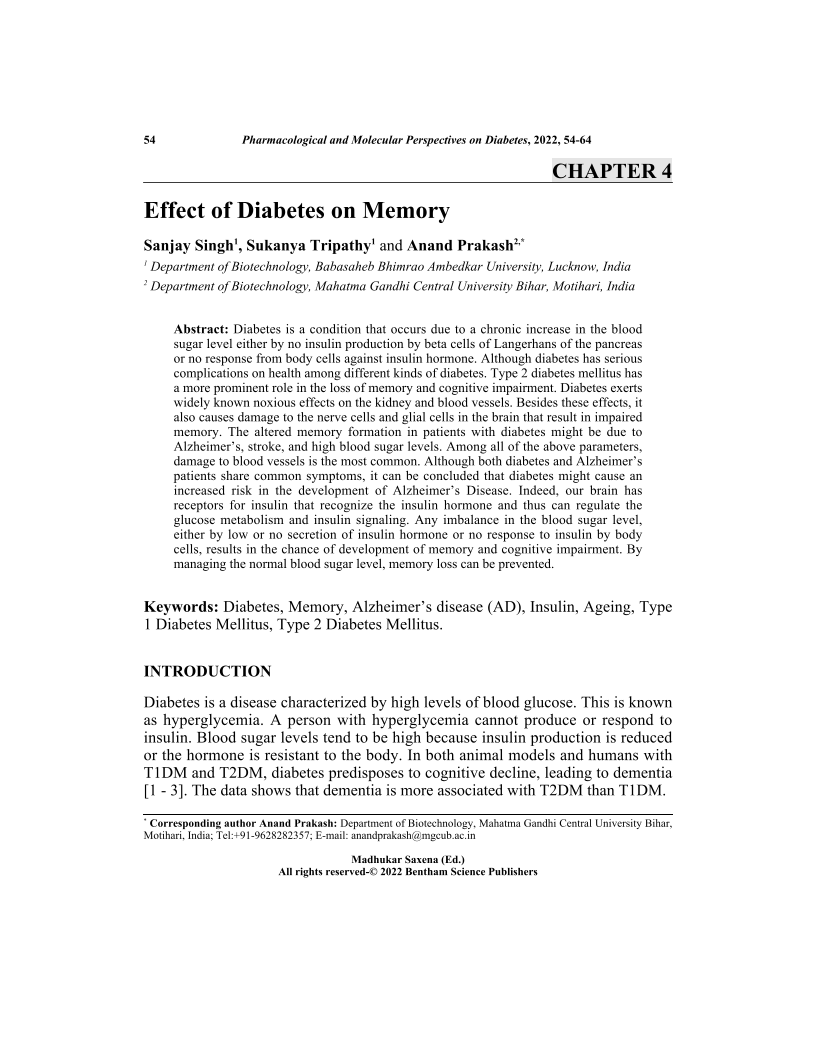Effect of Diabetes on Memory

- Authors: Sanjay Singh1, Sukanya Tripathy2, Anand Prakash3
-
View Affiliations Hide Affiliations1 Department of Biotechnology, Babasaheb Bhimrao Ambedkar University, Lucknow, India 2 Department of Biotechnology, Babasaheb Bhimrao Ambedkar University, Lucknow, India 3 Department of Biotechnology, Mahatma Gandhi Central University Bihar, Motihari, India
- Source: Pharmacological and Molecular Perspectives on Diabetes , pp 54-64
- Publication Date: April 2022
- Language: English
Effect of Diabetes on Memory, Page 1 of 1
< Previous page | Next page > /docserver/preview/fulltext/9789815040227/chap4-1.gif
Diabetes is a condition that occurs due to a chronic increase in the blood sugar level either by no insulin production by beta cells of Langerhans of the pancreas or no response from body cells against insulin hormone. Although diabetes has serious complications on health among different kinds of diabetes. Type 2 diabetes mellitus has a more prominent role in the loss of memory and cognitive impairment. Diabetes exerts widely known noxious effects on the kidney and blood vessels. Besides these effects, it also causes damage to the nerve cells and glial cells in the brain that result in impaired memory. The altered memory formation in patients with diabetes might be due to Alzheimer’s, stroke, and high blood sugar levels. Among all of the above parameters, damage to blood vessels is the most common. Although both diabetes and Alzheimer’s patients share common symptoms, it can be concluded that diabetes might cause an increased risk in the development of Alzheimer’s Disease. Indeed, our brain has receptors for insulin that recognize the insulin hormone and thus can regulate the glucose metabolism and insulin signaling. Any imbalance in the blood sugar level, either by low or no secretion of insulin hormone or no response to insulin by body cells, results in the chance of development of memory and cognitive impairment. By managing the normal blood sugar level, memory loss can be prevented. nbsp;
-
From This Site
/content/books/9789815040227.chap4dcterms_subject,pub_keyword-contentType:Journal -contentType:Figure -contentType:Table -contentType:SupplementaryData105

